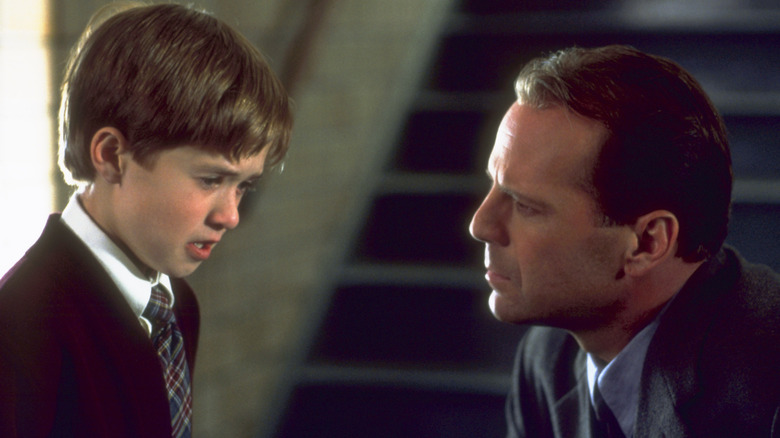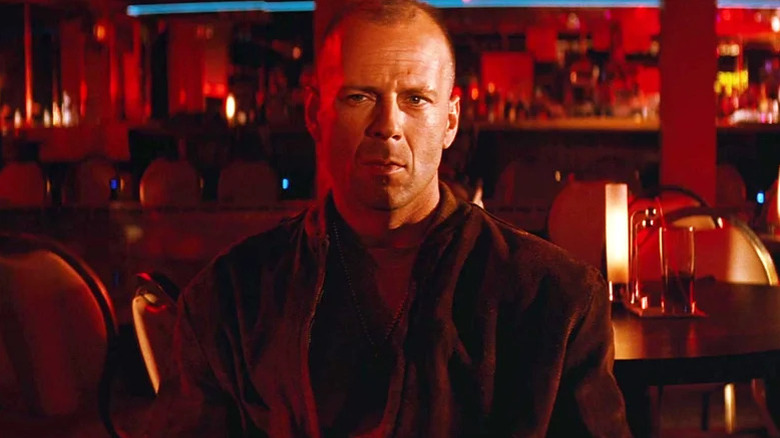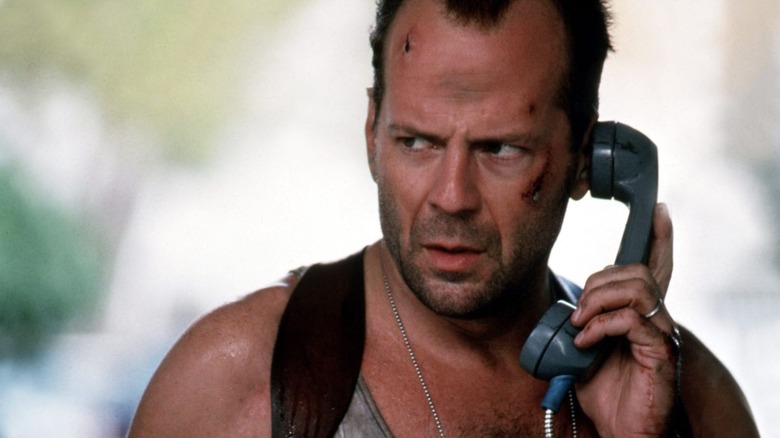
At the 2021 Comedy Central Roast of Bruce Willis, host Joseph Gordon-Levitt delivered this classic joke: “I loved ‘The Sixth Sense.’ It’s a great movie. And the ending, I did not see that twist coming … At the end of ‘The Sixth Sense,’ Bruce goes back to making sh***y movies.”
It’s funny because, well, it’s sort of true: “The Sixth Sense” is widely considered one of the last truly good Bruce Willis movies. Sure, he gave some fun performances in “Lucky Number Slevin” and “Moonrise Kingdom,” but the spooky 1999 M. Night Shyamalan drama was pretty much the last time Willis was the leading man in a massive critical and commercial hit.
On IMDb, “The Sixth Sense” has an 8.2 rating, ranking it 144th among the site’s top 250 list of best-ranked movies. It’s not a surprising placement, given how influential it became in pop culture. People were quoting “I see dead people” for years afterwards, and it’s become a popular sitcom trope for a jerk character to spoil the movie’s ending for another character getting into it for the first time.
The movie was so good that it cast a giant, somewhat-unfair shadow over the rest of the director’s movies. For over a decade M. Night Shyamalan was having his projects constantly compared to “The Sixth Sense,” an unfair standard to judge any movie by. The movie also earned Shyamalan a reputation for his big, “Twilight Zone”-style twists, even though there’s a lot more to his storytelling than that.
But as iconic as “The Sixth Sense” was, according to IMDb it’s still only the third highest-rated movie in Willis’ filmography. His real highest-rated film came out five years earlier, with Willis playing a smaller role…
Pulp Fiction is Bruce Willis’ best movie on IMDb
Bruce Willis doesn’t play the main character in “Pulp Fiction,” but many would argue that his character Butch is the movie’s co-protagonist alongside Jules (Samuel L. Jackson). Although Jules and Vincent (John Travolta) are often seen as the movie’s main duo, it’s only Jules and Butch who go through a genuine character journey. Jules becomes disillusioned with his life of crime and chooses to walk away from it, while Butch decides to redeem himself after his initial betrayal of the gangster Marsellus (Ving Rhames). Like Jules, Butch reveals an inner sense of morality: he saves Marsellus’ life despite knowing that he could die in the process, and that Marsellus might kill him afterwards anyway.
Although “Pulp Fiction” can’t really be called a Bruce Willis movie in the same way “The Sixth Sense” was, Willis plays a vital role here on and off the screen. Not only is he involved in some of the movie’s most action-packed moments, but Willis’ name on the cast list was a big part of what made the movie a guaranteed box office hit. In 1994 Willis was one of the biggest names attached to the movie, and had a clear international appeal that helped the production attract a great deal on international distribution rights.
How did Bruce Willis become such a beloved A-lister? Well, that has something to do with his earliest top 250 IMDb film, “Die Hard.” The 1988 thriller might be “only” rated 8.2, ranking it 117th overall and far below the 8.9 rating of “Pulp Fiction,” but it’s arguably the most impressive movie of Willis’ career…
Die Hard is Bruce Willis’ second best movie on IMDb
It’s no surprise that “Die Hard” is so highly rated. Alan Rickman kills it as the scheming, cold-blooded thief Hans Gruber. As a kid I often worried if I was a bad person for rooting for him, but on rewatch it seems clear that the movie totally wants you admire him at least a little bit. The scene where Hans pretends to be a scared hostage, and it’s not clear at all how much McClane’s buying it, is told mostly from Gruber’s point of view, getting us stressed out on Gruber’s behalf as it seems like McClane’s about to kill him early.
But as delightful as Rickman’s performance is, it’s Willis as McClane that holds the whole story together, giving a tough-yet-vulnerable performance that left the whole world swooning. And unlike in “Pulp Fiction,” Willis is undeniably the main character here; the movie lives and dies on Willis’ ability to get us believing in and rooting for this plucky New York cop. Although Willis was already sort of famous thanks to the TV show “Moonlighting,” this was the movie that made him a household name. It’s hard to believe that Fox cast him as a last resort, but thank goodness they did.




Leave a Reply